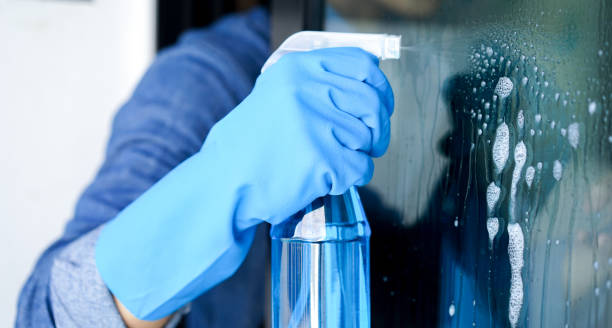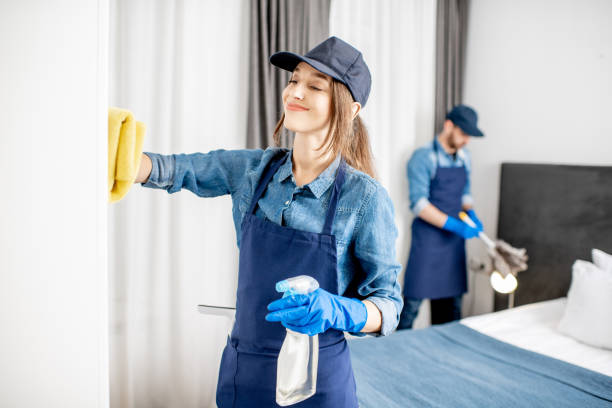Regular pool cleaning services Melbourne and maintenance is essential for keeping your water safe, clean, and inviting. However, many pool owners are not aware of what they need to do on a weekly basis to keep their pools in good shape.
Depending on your pool usage and location, daily cleaning can be as simple as removing leaves and debris with a skimmer net.

Algae
Algae are photosynthetic organisms that use the sun, water and carbon dioxide to make their own food. While they aren’t harmful on their own, they do harbor dangerous bacteria, including E coli and parasites that can cause diarrhea, cramping and nausea in people who swim in the pool. Additionally, algae can clog up filters and other equipment and lead to decreased water flow and a murky appearance.
The most common type of algae found in pools is green. This type of algae can be free floating or cling to walls and surfaces, and it usually rears its ugly head after the water has become hazy from insufficient filtration, sanitation or chlorine levels. It can also form in sheets and cover entire sections of a pool’s wall. Black algae, which look like mold but are actually bacteria, grow in cracks and crevices on surfaces with rough textures, such as concrete or plaster. Mustard algae, which are a muddy yellow or brownish color, are also bacteria and can grow in streaks or spots in corners and crevices.
Regular cleaning of the swimming pool can help to keep algae away. Professionals recommend brushing the pool’s walls, floors, and steps weekly, vacuuming the skimmer basket regularly, and skimming the surface of the pool for debris every day. Additionally, they recommend testing and balancing the pool water weekly to ensure the proper pH level and adding a preventative dose of an algaecide. For those in Melbourne looking to build a pool, trusted pool builders Melbourne can create your dream swimming oasis, ensuring quality construction and design expertise.
Water Chemistry
A dirty and murky pool can be a hazard to swimmers. It also reduces the overall curb appeal of your property and can lower its value if you’re considering selling. Thankfully, hiring a professional can mitigate these issues and ensure your pool looks its best all year round.
The most important part of keeping your pool clean is water chemistry. You need to balance your sanitizer levels, test the water’s pH, and add chemicals as needed. Additionally, you should skim the water surface and empty your skimmer basket once a week. You should also vacuum the bottom of your pool once a week to remove leaves and other debris.
Brushing your pool walls and ladders regularly is another key maintenance step that helps keep your pool free of algae and bacteria. A good brush is essential since it will be exposed to a lot of chemicals and should be made from stainless steel or nylon.
It’s also a good idea to check your pool’s water level each month, especially during the summer when it’ll evaporate quickly. You might need to refill your pool and consider “shocking” it once a month to super-chlorinate the water and kill any bacteria. Additionally, you should run your pool pump at least 10 hours a day to improve the water’s circulation. Moreover, cleaning your filter monthly is essential to maintain proper filtration and water circulation.

Equipment
A pool is the ideal attraction for families and friends to gather, but it’s also a place that needs to be cleaned frequently to keep bacteria from building up and contaminating the water. The best way to do this is with the right tools and a schedule that is tailored to your pool’s needs.
Chlorine and other chemicals help to keep the water clean, but they can’t remove all of the debris that floats on the surface of the water or gets stuck to the walls and floor. A skimmer net is essential for cleaning the top and bottom of the water’s surface. Attached to a telescopic pole, this tool allows you to skim the water regularly and collect leaves, bugs, twigs, hair ties, etc.
You should also be testing the water weekly (using test strips or a liquid kit) to make sure that your pool has adequate levels of sanitizers and is not overly acidic or alkaline. This will allow you to catch any issues quickly and take action.
Brushing your pool twice a week is also important. This helps to push any algae formations into the water where chlorine and other sanitizers can kill them. You can use a standard pool brush, or opt for a wider brush with a longer handle to get into all of the nooks and crannies.
Tiles
Having a pool is great for swimming, but it also comes with a lot of responsibilities. Cleaning and maintenance is crucial to ensure your pool stays healthy and safe for all to use. In addition to weekly vacuuming, brushing walls and ladders and skimming the surface of the water and pool floor, you should also clean the tiles on a regular basis.
Using a stiff-bristled scrub brush and a solution of vinegar and water or a special tile cleaner, you can remove any dirt or residue that builds up on the tile at the waterline of your swimming pool. If there is a heavy layer of calcium build-up, you might need to try scrubbing the tiles with a pumice stone. These stones can be found at most home improvement stores and are perfect for removing tough deposits from your swimming pool.
The best way to keep your tile looking good is to brush it daily to prevent algae growth. By brushing the tiles regularly, you are pushing any algae formations into the water where chlorine or other sanitizers can kill it.
If your pool sees a lot of use, or is located in an area that gets more rain, you might need to clean it and the tile more often. A professional should be able to assess your swimming pool and determine an appropriate cleaning schedule for you.





